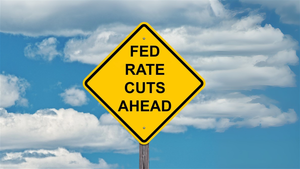The AIDS Healthcare Foundation (AHF) and the AHF Global Public Health Institute acknowledge the conclusion of three years of negotiations on the global pandemic agreement text by congratulating the negotiators—particularly representatives of the Equity and Africa Groups—and recognizing the contributions of key stakeholders, including civil society, who championed equitable access to public health goods.
“Even before the COVID-19 pandemic, we began collaborating with non-governmental stakeholders to develop a proposal for a new global public health convention, which was published in The Lancet Public Health in May 2021,” said Dr. Jorge Saavedra, Executive Director of the AHF Global Public Health Institute. “Just a week after the discovery of the Omicron variant, the world responded with urgency, and WHO Member States established the Intergovernmental Negotiating Body (INB) to draft and negotiate a new international instrument on pandemic prevention, preparedness, and response. Several of the ideas in our Lancet article were incorporated into the discussions during the negotiations.”
Since then, AHF has been actively engaged in the negotiation process as both an advocate and coalition builder among non-governmental organizations at the country level and as an INB stakeholder. Alongside other relevant stakeholders, AHF has played a consistent role in advocating for key aspects of the agreement that are now incorporated in a final draft that promotes cooperation in research and development, geographically diversified local production, technology transfer, and establishes Pathogen Access and Benefit-Sharing System (PABS). However, AHF believes the final draft does not go far enough to ensure equitable and timely access to lifesaving medical countermeasures worldwide.
“During the COVID-19 pandemic, there was no shortage of good intentions and promises of cooperation—but as we’ve seen, words alone don’t deliver lifesaving vaccines and treatments to the people who need them most,” said AHF President Michael Weinstein. “The upcoming negotiations on financing mechanisms and the PABS annex must result in concrete, measurable, and sufficient benefits—where needs are objectively defined based on public health risk, and access to specific public health goods is guaranteed. They must also include enforceable obligations if we’re serious about making progress and avoiding a repeat of the unacceptable inequities we saw during this last pandemic.”
To the detriment of equity, the pharmaceutical industry exerted disproportionate influence over the negotiation process, pushing for the inclusion of clauses that threatened countries' sovereign rights on technology transfer. Their demands—championed by a few wealthy countries—also threatened to hold the entire agreement hostage unless included in the final text. AHF also expresses its concern about efforts by the pharmaceutical industry to use the pandemic agreement as a vehicle to encroach on the regulatory space for technology transfer and use it to undermine international norms and sovereign rights that safeguard equitable access to medicines and health technologies.
While AHF supports the anticipated adoption of the final draft agreement by the World Health Assembly, several critical steps must also be taken. These include establishing a sustainable financing mechanism; ensuring formal involvement of relevant non-state actors—including universities and civil society; strengthening regional capacity to produce, coordinate, and respond to public health emergencies; and securing a robust and enforceable PABS system.
“Article 12, which addresses PABS, falls short of ensuring equitable access to global public health goods during—and before—a pandemic is declared,” added Weinstein. “Setting a target of 20% of production is likely below what was achieved during the three years of the COVID-19 pandemic. One advantage, though, is that under this agreement, allocation of health products will occur in real time during emergencies—rather than waiting for wealthy countries to send leftovers to the rest of the world.”
“Another serious concern,” he continued, “is that the administration and coordination of the PABS system has been left to the WHO. Given their poor performance as global coordinator of COVAX during COVID-19, it’s doubtful they are equipped to manage this critical function without significant institutional reform.”
AIDS Healthcare Foundation (AHF) is a global non-profit organization providing cutting-edge medicine and advocacy to over 2.3 million people in 47 countries worldwide in the US, Africa, Latin America/Caribbean, the Asia/Pacific Region and Europe. We are currently the largest non-profit provider of HIV/AIDS medical care in the world. To learn more about AHF, please visit our website: www.aidshealth.org, find us on Facebook: www.facebook.com/aidshealth and follow us on Twitter: @aidshealthcare and Instagram: @aidshealthcare
View source version on businesswire.com: https://www.businesswire.com/news/home/20250418619062/en/
Contacts
US MEDIA CONTACT:
Guilherme Faviero, Director, AHF Global Public Health Institute at the University of Miami
+1 561.929.9339 mobile
guilherme.faviero@ahf.org
Denys Nazarov, Director of Global Policy and Communications
+1 323.308.1829
denys.nazarov@aidshealth.org






